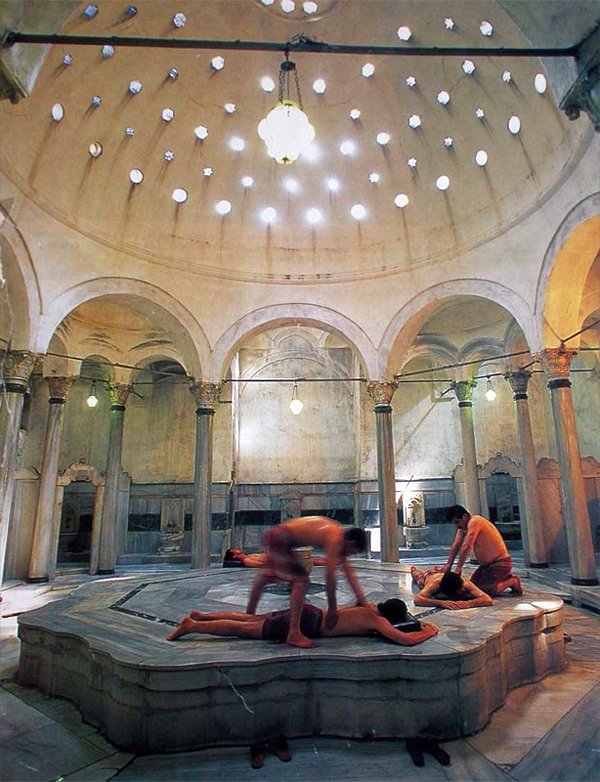Unique Experiences: Don’t leave without experiencing a Turkish Bath: Hamam
Table of Contents
Turkish Bath

In a Turkish Bath hamam there are either two separate sectio ns for each of the sexes or different days and hours allocated to men and women.
When you enter the first section or the changing area of a hamam you begin by taking off your clothes and putting on a “peştemal”, which is a piece of striped cotton cloth. This is wrapped around the midriff and tucked into place. Some people choose to wear their bathing suits underneath or instead of the “peştemal”. A type of wooden clog, called “nalın”, is worn on the feet. They will help you not to slip on the wet marble surface.
Dressed in “peştemal” and clogs, you go to the next room where a “göbek taşı” (navel stone), a marble heated table, is situated in the middle. Marble sinks and taps all around the walls surround the room. Here, you sit next to one of these sinks and start pouring lukewarm water over yourself with a hamam tası (bowl). You keep pouring water until your skin softens, meanwhile increasing the temperature of the water as your body gets used to it.
The Turkish Bath hamam attendant, tellak, will take you to the “göbek taşı” when your skin is ready and start rubbing your body with a special glove, kese. Tiny black pieces will get rubbed off your body that most people think is dirt. This is in fact the top layer of dead skin. At this stage a short massage is optional. Next, the tellak will give you a soapy rub down and wash you with water in decreasing temperature in order to make your pores close. He will then wrap you in towels.
Now it is time to go back to the lukewarm section to cool your body gradually while you lie down and drink tea in the traditional tiny glasses. Staying too long in the bath or moving to the hot or cold rooms without spending enough time in the lukewarm section is harmful for the body. Otherwise the whole Turkish Bath hamam experience is something very healthy and cures lots of diseases.

